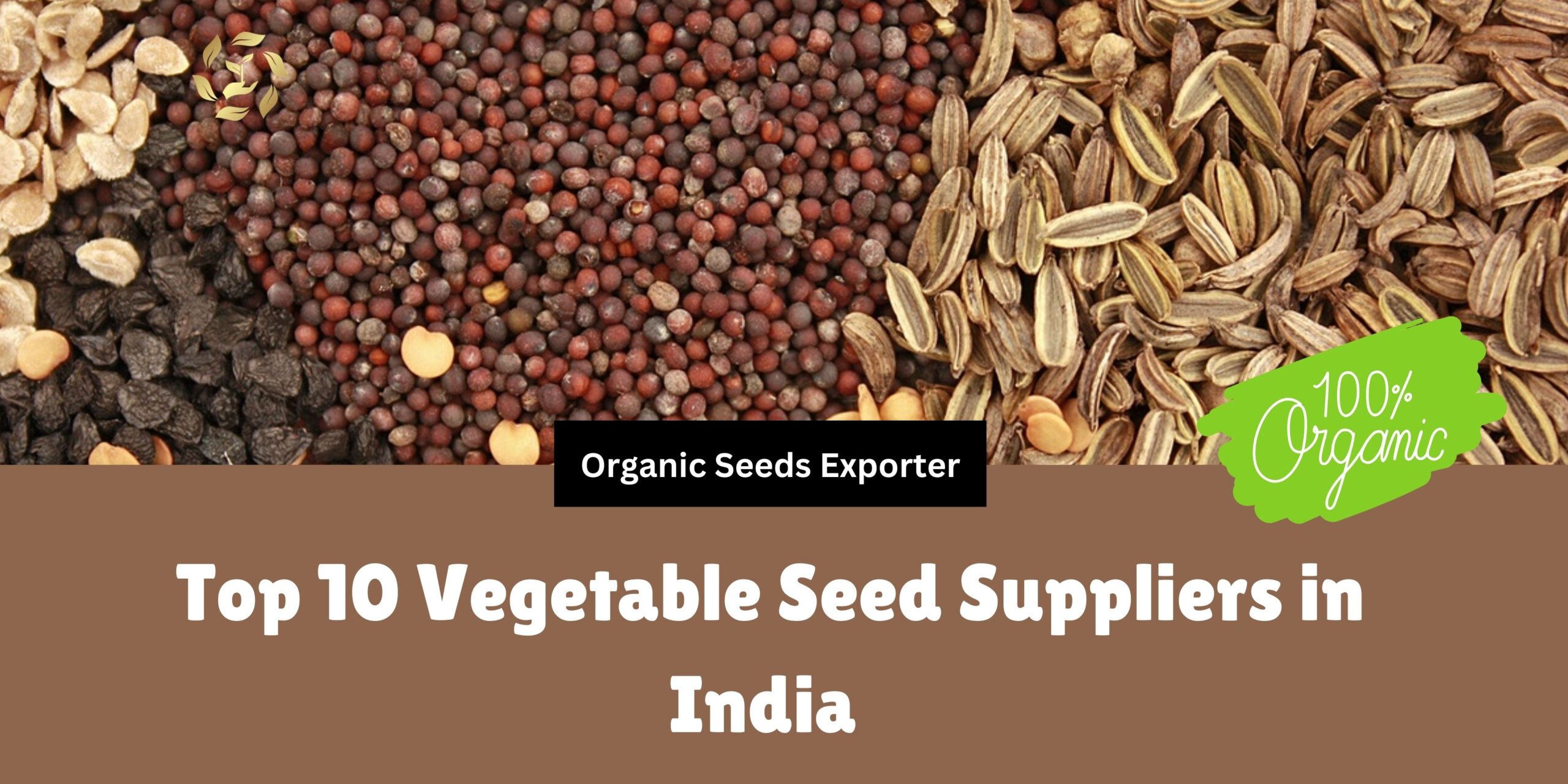Asiaflock Enterprises

Top 10 Vegetable Seed Suppliers in India for Home and Commercial Growers
India has become one of the fastest-growing hubs for agriculture and horticulture, and the demand for high-quality seeds of vegetables is stronger than ever. Whether you are a home gardener or a commercial farmer, choosing reliable suppliers ensures better yield, healthier crops, and profitable outcomes. In this guide, we’ll cover the top 10 vegetable seed companies in India, explore their strengths, and answer some common questions about growing vegetables from seeds.
The top 10 vegetable seeds companies in India play a vital role in supporting both domestic farming and the export of agricultural products. With rising interest in organic farming and Organic Vegetables Export from India, farmers and gardeners are increasingly looking for trusted sources of vegetable seeds.
Why Choosing the Right Seed Supplier Matters
Before we dive into the list, let’s understand why seed suppliers are so important:
- Quality Assurance – Certified companies provide disease-resistant and climate-friendly seeds.
- Variety Availability – You get access to different vegetable seeds names, hybrids, and organic options.
- Better Productivity – Using tested seeds can significantly boost yield.
- Export Opportunities – With growing demand for Export fruit and vegetable seeds, choosing top suppliers ensures compliance with global standards.
Did You Know?
“Carrot seeds are so tiny that 1 gram can contain up to 1,000 seeds, enough to cover a large garden patch.”
Top 10 Vegetable Seed Suppliers in India
- Tomato Seeds
Our tomato varieties are bred for high yields, excellent flavour, and firm, juicy fruits. They thrive in both open fields and greenhouse conditions, making them ideal for growers who want consistency and profitability. With strong resistance to common diseases, these seeds ensure a long harvest period.
- Cabbage Seeds
Asia Flock cabbage seeds are early-maturing and highly resistant to pests and diseases. They produce compact, uniform heads with crisp texture and high market value. Perfect for fresh consumption as well as storage and transport.
- Cauliflower Seeds
Our cauliflower hybrids deliver dense, uniform white curds that are rich in nutrients and have excellent shelf life. These varieties adapt well to diverse climates, giving farmers flexibility in planting seasons.
- Chilli Seeds
Specially developed for strong germination and high pungency, our chilli seeds are suitable for both local consumption and commercial farming. They offer uniform pod size, vibrant colour, and long harvest cycles, making them a profitable choice for farmers.
- Cucumber Seeds
Known for their uniform shape, high yield, and natural disease tolerance, our cucumber hybrids are ideal for both salads and pickling. They are vigorous growers with consistent performance across different soil types.
- Carrot Seeds
Our carrot varieties produce sweet, crunchy, and brightly coloured roots. They adapt well to various soils, ensuring farmers achieve a high-quality harvest with great storage potential and excellent consumer appeal.
- Spinach Seeds
Asia Flock spinach seeds grow into fast-maturing, nutrient-rich plants that are packed with iron and vitamins. These leafy greens thrive in multiple climates and can be harvested multiple times, making them a favourite for both home gardens and commercial markets.
- Eggplant (Brinjal) Seeds
Our eggplant hybrids produce glossy, firm fruits in a range of attractive shapes and sizes. They are strong, hardy plants with high resistance to common pests, ensuring consistent yields throughout the growing season.
- Okra Seeds
Our okra hybrids are designed for high productivity, tender pods, and resistance to wilt and leaf diseases. These varieties ensure smooth, uniform produce that meets both local demand and commercial export standards.
Tips for Buying Vegetable Seeds
- Check for certification and authenticity.
- Match the seed variety with your climate and soil.
- Look for suppliers offering disease-resistant hybrids.
- Compare prices and germination rates.
- Choose suppliers with expertise in both domestic and Export of Agricultural Products.
Key Takeaways
- The top 10 vegetable seed companies in India play a key role in both domestic and international farming.
- Choosing certified suppliers ensures higher germination, better yield, and disease resistance.
- Companies like Asia Flock, Mahyco, and Syngenta dominate the Indian seed market.
- With rising demand for organic vegetables export from India, the seed industry is becoming more innovation-driven.
- Understanding factors like viability, storage, and sowing practices can improve your success in growing vegetables.
The Indian seed industry is vast, but the top 10 vegetable seed companies in India highlighted above are trusted by farmers and home growers alike. By choosing high-quality seeds and following best practices, you can enjoy abundant harvests and even explore opportunities in the export fruit and vegetable seeds sector.
Ready to start your gardening or farming journey? Choose from one of these trusted suppliers and begin your success story with the right vegetable seeds today!
Frequently Asked Questions
Most vegetable seeds remain viable for 1–5 years, depending on storage conditions. Cool, dry, and airtight storage can extend their life.
Flower and vegetable seeds generally last 2–3 years on average. However, seeds like onions and parsley have a shorter lifespan compared to tomatoes and cucumbers.
On average, vegetable seeds sprout in 7–14 days. Some fast growers like radishes sprout in just 3–5 days.
For small seeds like lettuce or carrots, 2–3 per hole is ideal. Larger seeds like beans or peas may need just 1–2 per hole.
Start by planting seeds in seed trays or small pots. Use nutrient-rich soil, maintain proper moisture, and ensure adequate light. Once seedlings are strong, transplant them outdoors.

